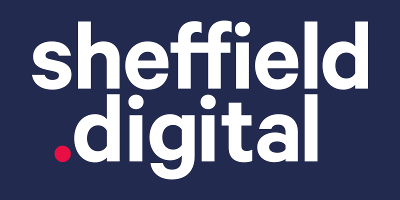[Photo from Prachatai, Flickr www.flickr.com]
Welcome to PyData Edinburgh 2021, April edition! We've been quiet for a bit but we tonight have Matthew Higgs (who was one of the original founders of PyData Edinburgh!) with an interesting talk, so as always, get comfy and grab a beer. We hope to see you all in person at some point - not too far away?
As always, we're keeping this to a one hour session, and we will have a main talk plus a Q&A session at the end. We will meet at 6.30pm, use the Zoom link which will be provided in the registration email once you RSVP.
We want to very much keep this group alive, so let us know if you would like to give a talk in the future, whether a main or a lightning one, we're always looking out for speakers (as you know!).
MAIN TALK & SPEAKER BIO:
=====================================================================
What can data scientists learn from data-driven responses to Covid-19?
Data-driven responses to Covid-19 have been developed at speed across the public sector, academia, and commercial sector - leading to a range of successes, failures, and opportunities for lessons to be learned. At the ‘Observatory for Monitoring Data-Driven Approaches to Covid-19’ (omddac.org.uk) we are analysing key data-driven responses to Covid-19 and collating lessons learned by way of stakeholder interviews, case study analysis, and representative public surveys. In this talk, I will highlight some key findings from our stakeholder interviews and reflect on the role of data science during the Covid-19 pandemic. I will discuss successful applications of data science, ethical issues to be aware of, and what stakeholders *really* think about working with data scientists.
Matthew Higgs MMath, PhD is a Lecturer in the Department of Computing and Information Sciences at Northumbria University and a Co-Investigator on the UKRI-funded project ‘Observatory for Monitoring Data-Driven Approaches to Covid-19’ (omddac.org.uk). Since completing his PhD in Computational Statistics and Machine Learning at University College London in 2011, Matthew has worked in technical and non-technical roles in academia, the commercial sector, and the public sector - with a focus on managing diverse stakeholders and developing data-driven products and solutions.
LOGISTICS
===========
1825: Zoom Waiting room will open
1830: Meetup will start - welcome & community announcements followed by our main speaker, and then Q&A
We'll aim to be finished by 1930
REMOTE MEETINGS
===================
Please remember the Code of Conduct applies to a remote meeting as well.
When you join the meeting, your microphone will be muted, and your camera switched on, we miss you all, it's nice to see you! Once the talk starts, feel free to switch your camera off.
We'll use the chat channel in Zoom to deal with any issues, and we'll advise on how we will run the Q&A at the start of the session.
SPONSORS
=============================
While we might not be making such full use of our sponsors as we normally do, we still appreciate all they do for us to allow us to run this group - so thanks to Cathcart Associates, Wood Mackenzie, Solarwinds, Lloyds Banking, Canon Medical and Effini.
CODE OF CONDUCT
====================
Though virtual, our Code of Conduct still applies to all attendees, organisers and speakers. Please take the time to read through if you haven't before, we really appreciate your help to maintain a welcoming and friendly PyData community.
The PyData Code of Conduct (pydata.org) governs this meetup. To discuss any issues or concerns relating to the code of conduct or the behavior of anyone at a PyData meetup, please contact the local group organizers (message us on the meetup page). Please also submit a report of any potential Code of Conduct violation directly to NumFOCUS using the link found at numfocus.org.
More details andtickets: www.meetup.com
Imported From: www.meetup.com


